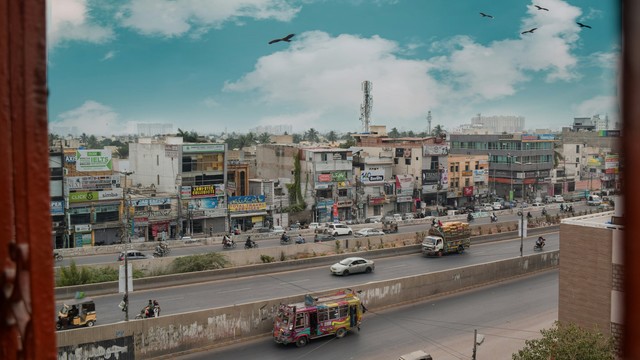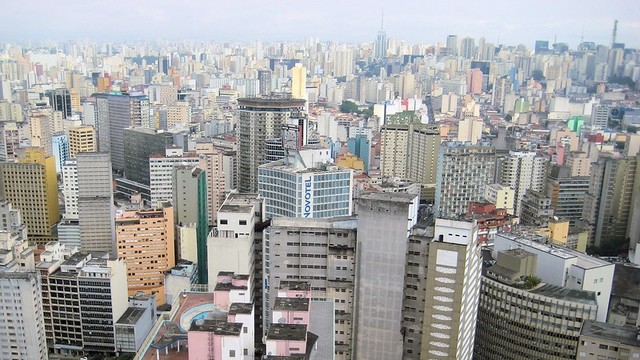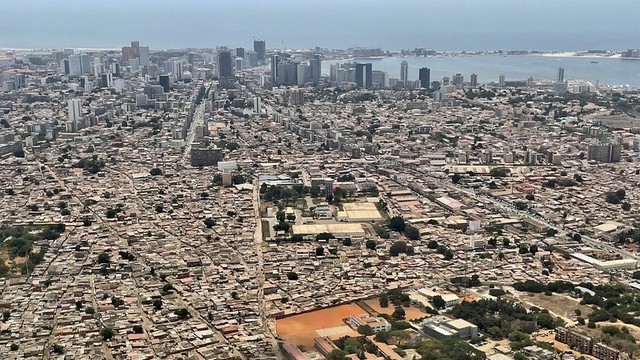Supporting waste pickers in Brazil’s cities: what’s needed and what needs to change?
A recent study highlighted the crucial role waste pickers play in three Brazilian cities, but how can their working lives be improved and how can their valuable knowledge be incorporated into city plans for managing waste and meeting climate change targets?


Street waste pickers are those who suffer the hardest during heat waves and flash floods (Photo: Sonia Dias archive)
WIEGO, in collaboration with the Urban Institute at the University of Sheffield, led an exploratory climate change mapping with waste pickers across Brazil and with an in-depth look at three cities in Brazil – Manaus (Amazonas), Salvador (Bahia) and Belo Horizonte (Minas Gerais). It set out to understand waste pickers’ perspectives on climate change, to map impacts on workers’ earnings, work routines and health, and to draw in their knowledge and preparedness regarding adaptation and coping strategies.
Support is lacking
Studies of waste pickers usually include some discussion of the lack of support from local and national government. But too few studies have looked at all sources of support.
Our research found that 30% of waste pickers reported they had not received any type of support from the government, civil society or the private sector to help cope with climate events. Of those who recalled receiving support, this primarily came from the private sector (34%), followed by city government (31%) and NGOs (23%).
Regarding the data on city government, 25% cited the support of the institution in general, 12% from civil defence teams and 7% from the Municipal Basic Sanitation Agency. The most common form of support was ad hoc donations from institutions, NGOs or private actors – sometimes in the form of material support such as food baskets or equipment.
Since cooperatives often mediate partnerships, non-organised waste pickers tend to be excluded from support offered by local institutions.
Call to action for city governments
Many interviewees underscored the role city governments could play in strengthening institutional support networks to enable waste pickers’ work. In addition, waste pickers emphasised the city government’s role in providing a workable legal framework to facilitate inclusive solid waste management policies.
As one male (organised) waste picker from Bahia commented: “City governments should sign contracts with the cooperatives to establish solid waste collection and pay waste pickers for services provided, including for non-organised waste pickers. With solid waste collection, we are reducing public spending given how there is a decrease in waste sent to landfills.”
In some cases, city government is also seen as a potential advocate to challenge structural discrimination and racial exploitation.
A female organised waste picker leader from Minas Gerais highlighted this clearly: “[The city] government plays a key role in hiring waste pickers and complying with the National Policy on Solid Waste. For those of us who are black and poor, we don’t have access to the means of production. The city government’s support is not charity… our challenges have to be addressed in the economic sphere, not only the social one.”
Policy and practice interventions urgently needed
Building waste pickers’ resilience to the effects of climate change builds resilience for the whole city. Their lived experience and knowledge are already shaping crucial responses to climate change, but building resilience requires concerted actions by a range of stakeholders.
- Invest in systematic monitoring of extreme weather to establish effective early warning systems, in tandem with training in response procedures. These should include emergency measures – as well as self-care and collective-care skills. Local governments and civil society could fund peer-to-peer support programmes for organised and non-organised waste pickers. Cooperatives and other waste picker networks play a key role in facilitating access to information and should be partnered in these initiatives.
- Invest in climate-sensitive workplace infrastructure. Climate change impacts are exacerbated by existing infrastructure and workplace equipment deficits. Waste pickers identified the need for improved drainage systems, flood-resistant storage spaces and improved ventilation, as well as better-designed recycling equipment.
Government funding institutions such as the Pro Catador (a programme to coordinate actions from multiple agencies and channel funds for inclusive recycling) and Caixa Econômica Federal (a Brazilian national bank in charge of urban infrastructure, including solid waste management) could create climate change funding lines for these infrastructural improvements.

Women waste pickers are climate change frontliners in the cooperative movement in Brazil (Photo: Sonia Dias archive)
Waste pickers, civil society and academia should have direct input into the design of these interventions. Special attention should be paid to supporting the needs of street pickers (autonomous and organised), such as the provision of water fountains and sheltered workspaces.
- Strengthen access to climate-sensitive social protection and services. Local, state and national governments need to plan and coordinate effectively for climate change risk management. As extreme weather events intensify, it is important to consider safety nets (such as emergency cash and food transfers), as well as longer-term support (such as child grants and pensions).
A climate-sensitive social protection system needs to be integrated with early warning and emergency response systems. Climate change impacts on workers’ health will require robust health systems capable of integrating climate change-related illnesses and injuries into primary healthcare services.
- Provide waste pickers with information on climate change realities and best practice adaptation strategies. Local governments, academia, civil society and waste pickers would benefit from co-producing material that is easily understood by non-specialists and credible to multiple audiences. This would enable waste pickers to have agency over an issue that directly affects their livelihoods.
- Establish a system of monitoring climate change impacts on waste pickers. The lack of data presents a barrier to a more nuanced understanding of how climate change impacts different groups of waste pickers and their workplaces. An ongoing monitoring system would help map, plan and monitor the effectiveness of adaptations.
Multiple stakeholders could provide expertise in setting up the system – including city government, civil defence teams, local and national environment officials, academia and civil society allies, as well as organised and non-organised waste pickers.
- Commit to institutionalised participatory forums. All levels of government and the private sector need to commit to ongoing, regular dialogue with organised and non-organised waste pickers and other key allies in civil society to plan effectively for climate adaptation solutions. Stakeholders should take advantage of municipal and state waste and citizenship forums, as well as sectoral committees at the national level, to prioritise attention to climate change effects.
- Build ecosystem of support networks. City governments play a key role in facilitating the recognition of waste pickers as service providers, implementing inclusive solid waste management practices, and mediating access to social protection schemes, to create a robust recycling culture. Cities should bring together a range of stakeholders who commit to building an institutional ecosystem of support networks to withstand climate shocks, including for waste pickers.
- Officially acknowledge waste pickers’ contributions to reducing greenhouse gas emissions. The UN Paris Agreement on climate change provides targets for reducing emissions through national, regional and locally determined contributions – providing a roadmap for governments.
Waste pickers’ contributions to achieving these targets at city, state and national level need to be modelled and incorporated both into the plans, and when monitoring progress. This is critical for accessing climate finance for waste management interventions in tandem with recognition of waste pickers’ needs.
It challenges the prevalent idea that workers in informal employment are an impediment to achieving the agreed targets when in fact the opposite is true.



